Related Research Articles

William Makepeace Thackeray was an English novelist and illustrator. He is known for his satirical works, particularly his 1847–1848 novel Vanity Fair, a panoramic portrait of British society, and the 1844 novel The Luck of Barry Lyndon, which was adapted for a 1975 film by Stanley Kubrick.

A humorist is an intellectual who uses humor, or wit, in writing or public speaking, but is not an artist who seeks only to elicit laughter. Humorists are distinct from comedians, who are show business entertainers whose business is to make an audience laugh. It is possible to play both roles in the course of a career. A raconteur is one who tells anecdotes in a skillful and amusing way.

Sidney Joseph Perelman was an American humorist and screenwriter. He is best known for his humorous short pieces written over many years for The New Yorker. He also wrote for several other magazines, including Judge, as well as books, scripts, and screenplays. Perelman received an Academy Award for screenwriting in 1956.
Jack Handey is an American humorist. He is best known for his "Deep Thoughts by Jack Handey", a large body of surrealistic one-liner jokes, as well as his "Fuzzy Memories" and "My Big Thick Novel" shorts, and for his deadpan delivery. Although many assume otherwise, Handey is a real person, not a pen name or character.
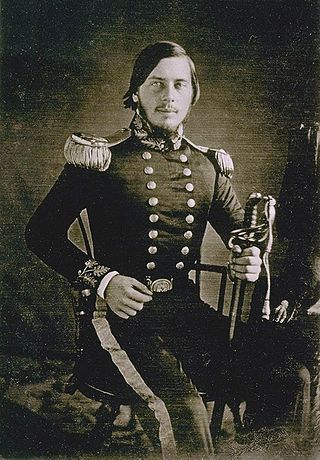
George Horatio Derby was an early California humorist. He attended West Point with Ulysses S. Grant. Derby used the pseudonym "John P. Squibob" and its variants "John Phoenix" and "Squibob." Derby served as a lieutenant in the U.S. Army Corps of Topographical Engineers. In his spare time, he wrote humorous anecdotes and burlesques, often under the guise of his pseudonyms.

William Wright (1829–1898), better known by the pen name Dan DeQuille or Dan De Quille, was an American author, journalist, and humorist. He was best known for his written accounts of the people, events, and silver mining operations on the Comstock Lode at Virginia City, Nevada, including his non-fiction book History of the Big Bonanza.
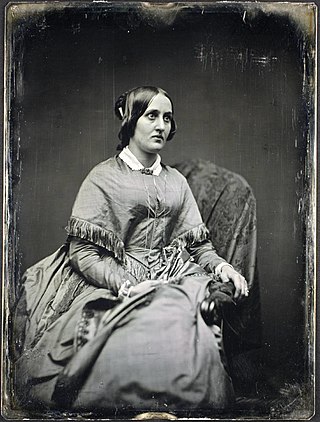
Sara Jane Lippincott was an American writer, poet, correspondent, lecturer, and newspaper founder. One of the first women to gain access into the Congressional press galleries, she used her questions to advocate for social reform and women's rights.
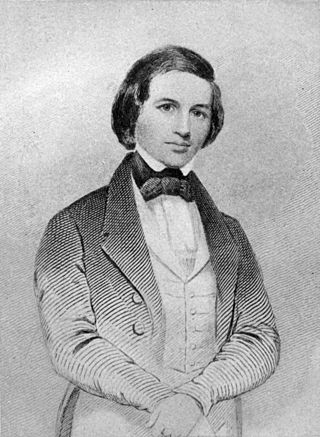
Timothy Shay Arthur — known as T. S. Arthur — was a popular 19th-century American author. He is famously known for his temperance novel Ten Nights in a Bar-Room and What I Saw There (1854), which helped demonize alcohol in the eyes of the American public.

The Spirit of the Times: A Chronicle of the Turf, Agriculture, Field Sports, Literature and the Stage was an American weekly newspaper published in New York City. The paper aimed for an upper-class readership made up largely of sportsmen. The Spirit also included humorous material, much of it based on experience of settlers near the southwestern frontier. Theatre news was a third important component. The Spirit had an average circulation of about 22,000, with a peak of about 40,000 subscribers.
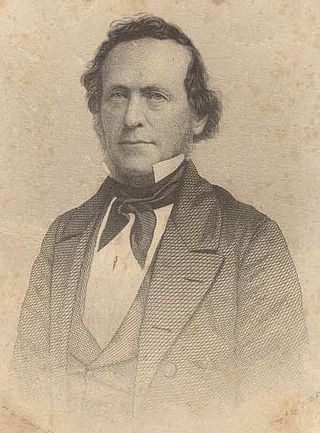
Seba Smith was an American humorist and writer. He was married to Elizabeth Oakes Smith, also a writer, and he was the father of Appleton Oaksmith.

John Weiss Forney was an American newspaper publisher and politician. He was clerk of the United States House of Representatives from 1851 through 1856, and again from 1860 through 1861. He was thereafter secretary of the United States Senate from 1861 through 1868.

The Boston Museum (1841–1903), also called the Boston Museum and Gallery of Fine Arts, was a theatre, wax museum, natural history museum, zoo, and art museum in 19th-century Boston, Massachusetts. Moses Kimball established the enterprise in 1841.

Mortimer Neal Thomson was an American journalist and humorist who wrote under the pseudonym Q. K. Philander Doesticks. He was born in Riga, New York and grew up in Ann Arbor, Michigan. He attended Michigan University but was expelled along with several others either for his involvement in secret societies or for "too much enterprise in securing subjects for the dissecting room." After a brief period working in theater, he became a journalist and lecturer.

William Croome (1790–1860) was an American illustrator and wood engraver in the 19th century. He trained with Abel Bowen in Boston, Massachusetts. Croome's work appeared in the American Magazine of Useful and Entertaining Knowledge (1830s), Lady's Annual (1830s), Crockett Almanac (ca.1840s), and in numerous children's books.
Horace Binney Wallace was an attorney, a critic of art and literature, and an accomplished author. He was a member of the Bar of Philadelphia.
Humphry William Woolrych (1795–1871) was an English lawyer, known as a legal writer and biographer.

Danforth Marble was an American comedic actor who gained great popularity playing "Yankee" roles in the 1830s and 1840s.
Henry Gardiner Adams (c.1811–1881) was an English druggist and chemist, known as an author and anthologist. He wrote juvenile literature under the pseudonym Nemo.
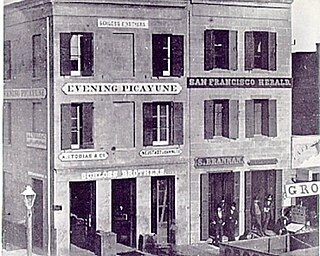
The San Francisco Herald, or San Francisco Daily Herald, was a newspaper that was published from 1850 to 1862 in San Francisco, California. The paper stood out aggressively against crime and corruption associated with the California Gold Rush. The editors fought several duels with men whom they had offended. In 1856 the paper attacked the Vigilance Committee, which was taking the law into its own hands. Supporters of the committee withdrew their subscriptions and advertising, almost forcing the newspaper to close. However, the newspaper continued to be published with smaller circulation until 1862.
References
- ↑ Routledge, TJ Carty, ed. (2000). A Dictionary of Literary Pseudonyms in the English Language. Taylor & Francis. ISBN 9781135955854.
- ↑ (26 November 1856). Advertisement, New York Tribune (advertisement for release "this day" of the Humors of Falconbridge, also states that Kelley wrote under pseudonyms of "Jack Humphries" and "Stampede")
- ↑ Hart, James. D. The Oxford Companion to American Literature, p. 344 (6th ed. 1995)
- ↑ Wilson, James Grant & John Fiske (eds.) Appleton's Encyclopaedia of American Biography, Volume 3, p. 508 (1888)